Search Definitions
Browse Content (p. 268)

Definition
Seleucus I Nicator
Seleucus I Nicator (l. c. 358-281 BCE, r. 305-281 BCE) was one of the generals of Alexander the Great (l. 356-323 BCE) who made up the group of Diadochi ("successors") who divided the vast Macedonian Empire between them after the death of...

Definition
Athena
Athena was the goddess of wisdom, war, and the crafts. She was the favourite daughter of Zeus and was, perhaps, the wisest, most courageous, and certainly the most resourceful of the Olympian gods. Zeus was told that his son would take his...
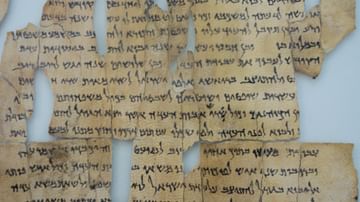
Definition
Dead Sea Scrolls
The Dead Sea Scrolls (DSS) are a collection of scrolls found in the desert east of Jerusalem on the shore of the Dead Sea. They represent the largest manuscript collections of texts from the Second Temple Period found in the area of Judah...
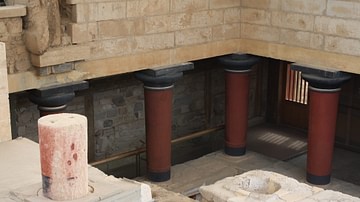
Definition
Minoan Architecture
The unique contribution of the Minoan civilization to European architecture is possibly most evident in the great palace structures of the major Minoan centres of Knossos, Phaistos, Malia and Zakros. Perhaps influenced by Egypt and the Near...
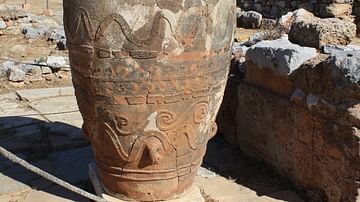
Definition
Malia
Located near a fertile plain in northern Crete and with its own harbour, Malia was one of the major settlements and palaces of the Minoan civilization. Inhabited since Neolithic times (6000 BCE) and with the first evidence of monumental architecture...
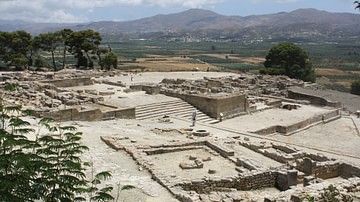
Definition
Phaistos
Located on the fertile Mesara plain in central Crete, Phaistos has been inhabited since the Final Neolithic period (c. 3600-3000 BCE). The settlements greatest period of influence was from the 20th to 15th century BCE, during which time it...
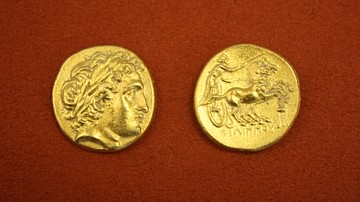
Definition
Numismatics
Numismatics the study of coinage, and is a wonderfully useful tool in the archaeologist's and historian's toolbox. One of the best things for an archaeologist to find while digging is a coin. The reason is simple; it can instantly provide...
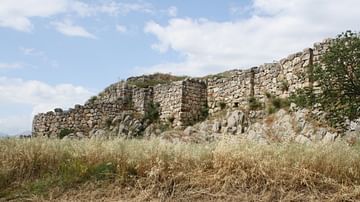
Definition
Tiryns
Located on the fertile Argolid plain, Tiryns lies between Nafplion and Argos in the eastern Peloponnese in Greece. The site has been inhabited since the Neolithic Age (7th-4th millennium BCE) but reached its greatest period of importance...
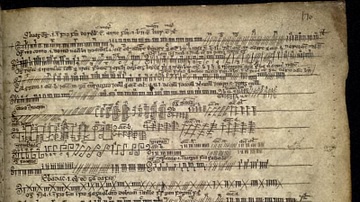
Definition
Ogham
One of the stranger ancient scripts one might come across, Ogham is also known as the 'Celtic Tree Alphabet'. Estimated to have been used from the fourth to the tenth century CE, it is believed to have been possibly named after the Irish...

Definition
Torah
The Torah, also known as the Pentateuch (from the Greek for “five books”), is the first collection of texts in the Hebrew Bible. It deals with the origins of not only the Israelites but also the entire world. Though traditionally the Hebrew...